The Importance of Prayer
Ta-Ha
(20:14)
Indeed, I am Allah. There is no deity except Me, so worship Me and establish prayer for My remembrance.
(20:131) And do not extend your eyes toward that by which We have given enjoyment to [some] categories of them, [its being but] the splendor of worldly life by which We test them. And the provision of your Lord is better and more enduring.
Al-Baqara
(2:277) Indeed, those who believe and do righteous deeds and establish prayer and give zakah will have their reward with their Lord, and there will be no fear concerning them, nor will they grieve.
(2:177) Righteousness is not that you turn your faces toward the east or the west, but [true] righteousness is [in] one who believes in Allah, the Last Day, the angels, the Book, and the prophets and gives wealth, in spite of love for it, to relatives, orphans, the needy, the traveler, those who ask [for help], and for freeing slaves; [and who] establishes prayer and gives zakah; [those who] fulfill their promise when they promise; and [those who] are patient in poverty and hardship and during battle. Those are the ones who have been true, and it is those who are the righteous.
(2:238-239)
Maintain with care the [obligatory] prayers and [in particular] the middle prayer and stand before Allah, devoutly obedient. And if you fear [an enemy, then pray] on foot or riding. But when you are secure, then remember Allah [in prayer], as He has taught you that which you did not [previously] know.
At-Tawba
(9:71) The believing men and believing women are allies of one another. They enjoin what is right and forbid what is wrong and establish prayer and give zakah and obey Allah and His Messenger. Those – Allah will have mercy upon them. Indeed, Allah is Exalted in Might and Wise.
Al-Furqan
(25:64-71)
And those who spend [part of] the night to their Lord prostrating and standing [in prayer] And those who say, “Our Lord, avert from us the punishment of Hell. Indeed, its punishment is ever adhering; Indeed, it is evil as a settlement and residence.” And [they are] those who, when they spend, do so not excessively or sparingly but are ever, between that, [justly] moderate And those who do not invoke with Allah another deity or kill the soul which Allah has forbidden [to be killed], except by right, and do not commit unlawful sexual intercourse. And whoever should do that will meet a penalty. Multiplied for him is the punishment on the Day of Resurrection, and he will abide therein humiliated – Except for those who repent, believe and do righteous work. For them Allah will replace their evil deeds with good. And ever is Allah Forgiving and Merciful. And he who repents and does righteousness does indeed turn to Allah with [accepted] repentance.
Ar-Ra’d
(13:28)
Those who have believed and whose hearts are assured by the remembrance of Allah. Unquestionably, by the remembrance of Allah hearts are assured.”
Hadith Al-Bukhari
The Prophet ﷺ said, “If a person had a stream outside his door and he bathed in it five times a day, would they have filth left on them?” The people said, “No filth would remain on them whatsoever.” The Prophet then said, “This is like the five daily prayers; Allah wipes away the sins by them.”
Hadith Al-Bukhari:
The Prophet ﷺ said, “If a person had a stream outside his door and he bathed in it five times a day, would they have filth left on them?” The people said, “No filth would remain on them whatsoever.” The Prophet ﷺ then said, “This is like the five daily prayers; Allah wipes away the sins by them.”
How to Pray
Leaving the Prayer
Al-Ankabut
(29:45)
Recite what has been revealed to you of the Book and establish prayer. Indeed, prayer prohibits immorality and wrongdoing, and the remembrance of Allah is greater. And Allah knows that which you do.
Hadith Muslim, Abu Dawud, Tirmidhi:
The Prophet Muhammad ﷺ said, “Between a person and disbelief is leaving the prayer.”
Hadith Bukhari, Muslim:
The Prophet Muhammadﷺ said, “The comparison of the one who remembers Allah to the one who does not remember Allah is like that of the living and the dead.”
Place of Prayer
Bukhari
The Prophet ﷺ said, “The earth has been made for me (and for my followers) a place for praying.”
Forbidden places of prayer
The Prophet Muhammad ﷺ prohibited prayer in seven places:
Dunghills
Slaughterhouses
Graveyards
In the middle of roads
Bathhouses
The roof of the ka’bah
Places where camels drink and rest
Cleanliness
Al-Ma’ida
(5:6) O you who have believed, when you rise to [perform] prayer, wash your faces and your forearms to the elbows and wipe over your heads and wash your feet to the ankles. And if you are in a state of janabah, then purify yourselves. But if you are ill or on a journey or one of you comes from the place of relieving himself or you have contacted women and do not find water, then seek clean earth and wipe over your faces and hands with it. Allah does not intend to make difficulty for you, but He intends to purify you and complete His favor upon you that you may be grateful.
An-Nisa
(4:43) O you who have believed, do not approach prayer while you are intoxicated until you know what you are saying or in a state of janabah, except those passing through [a place of prayer], until you have washed [your whole body]. And if you are ill or on a journey or one of you comes from the place of relieving himself or you have contacted women and find no water, then seek clean earth and wipe over your faces and your hands [with it]. Indeed, Allah is ever Pardoning and Forgiving.
Ghusl
Shower from head to toes should be performed after sexual relationship between husband and wife; or after the monthly menses. It is also highly recommended to have Ghusl (shower) before Friday Jumu’ah, and before prayer of two Eids.
Wudu
After using the washroom relieve oneself, one must clean with water. Also, after passing gas, or wake up from sleep, Wudu will be required before prayer. A valid prayer – a person must have Ghusl and Wudu, so cleanliness is a must to do a prayer.
Intention
No matter it is Ghusl or Wudu, before cleaning, one must have an intention that all these cleaning acts are being performed for the sake of Allah.
Wudu Procedures
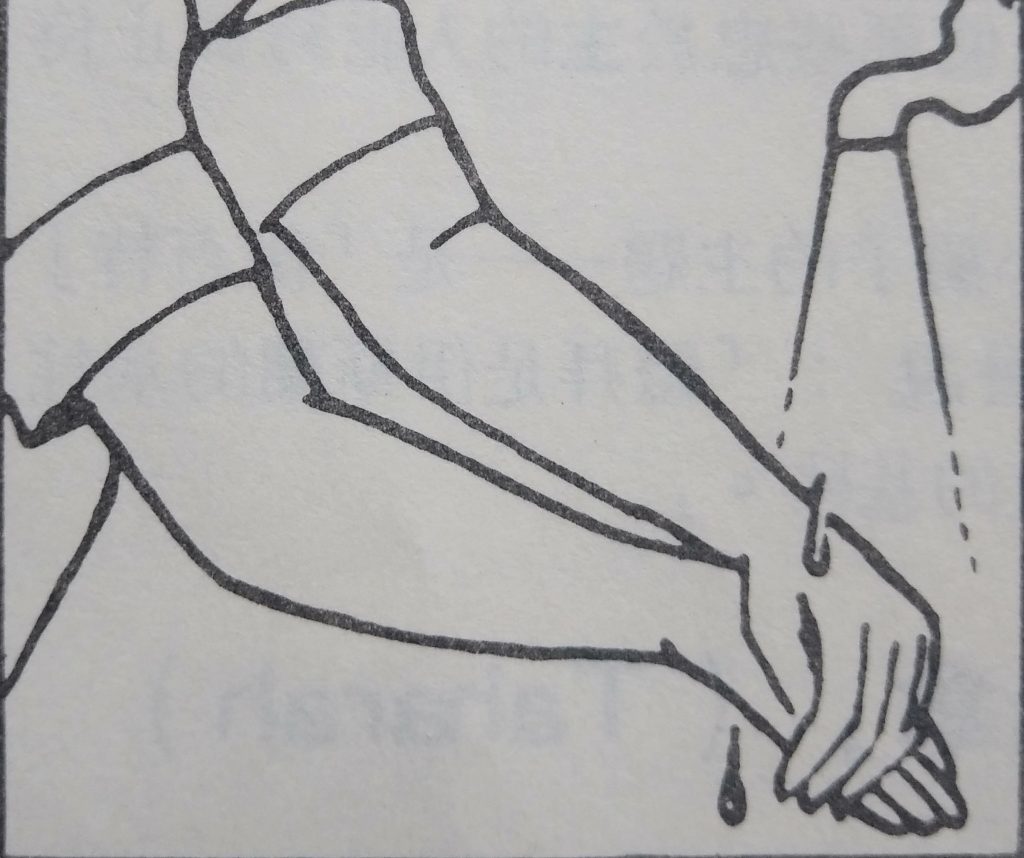
1:
Wash both hands to wrist x3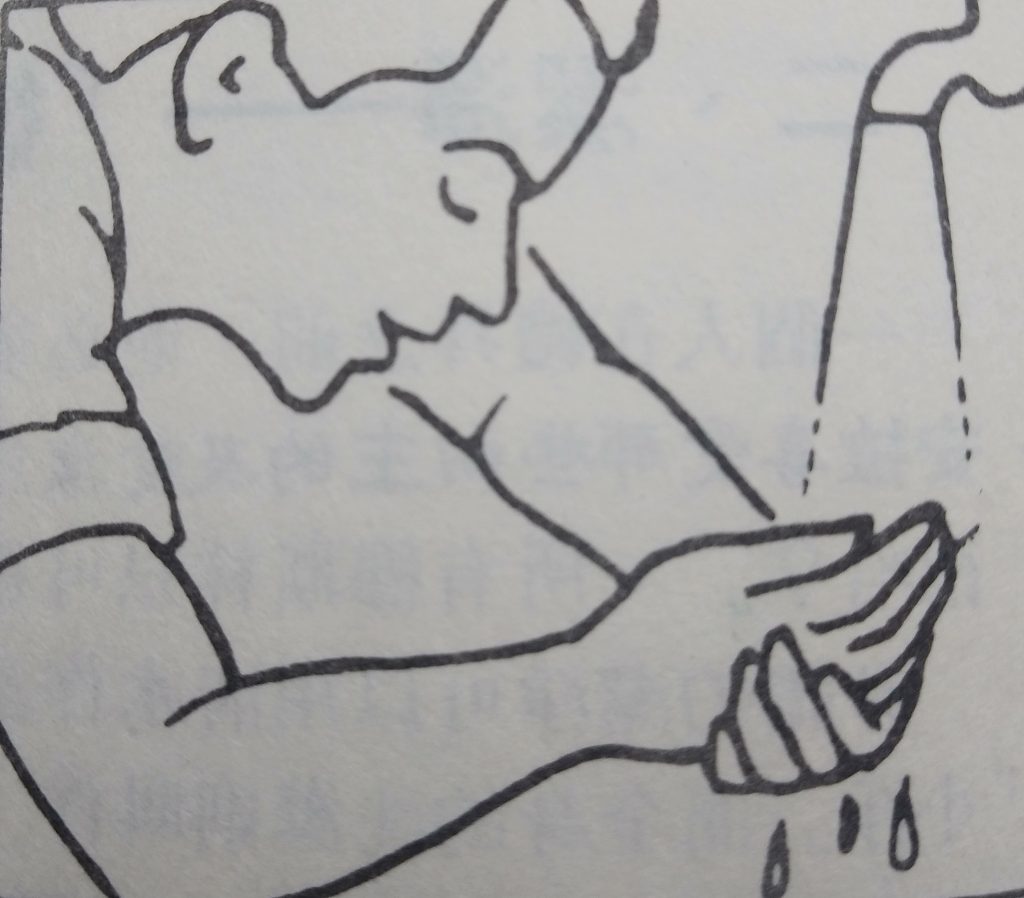
Cont. 1 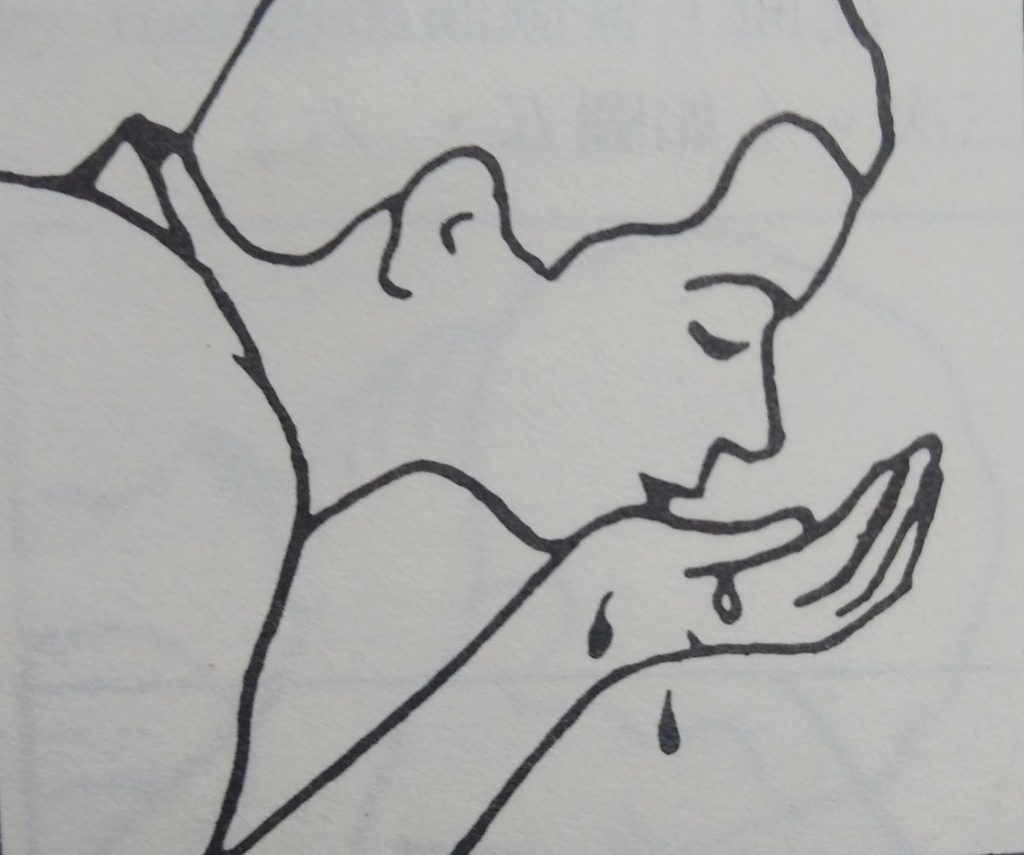
2:
Rinse mouth x3 times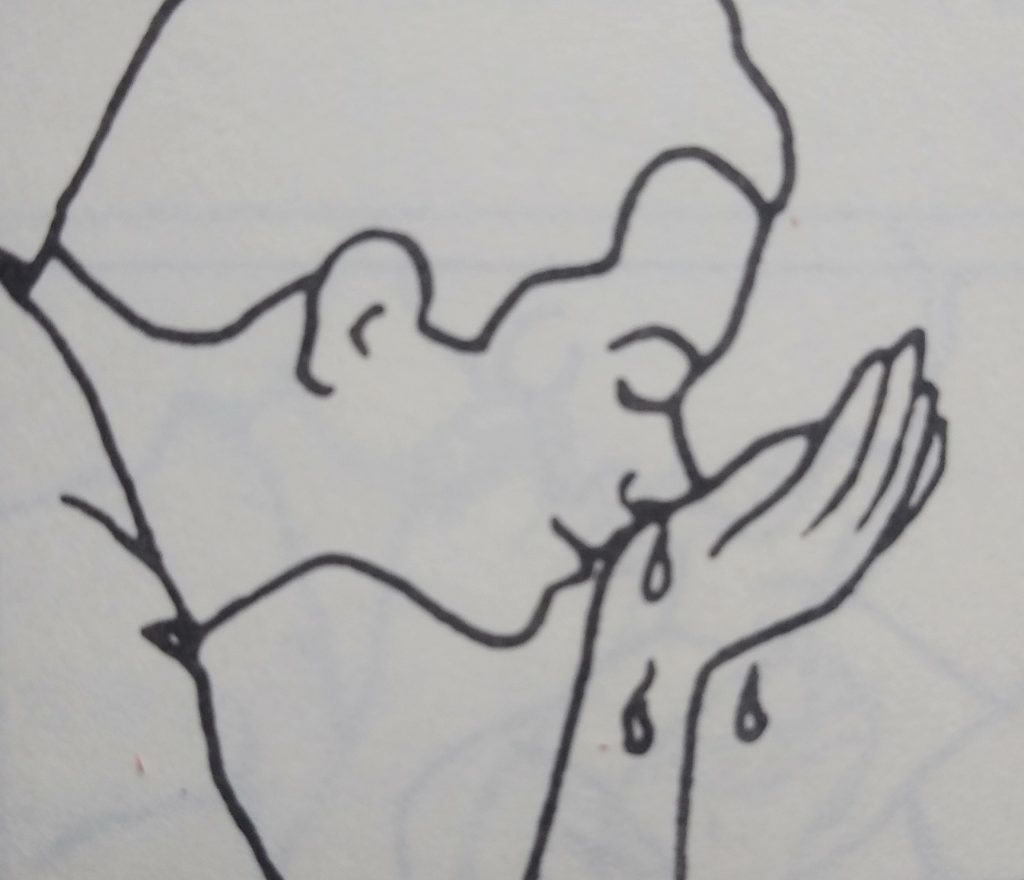
3:
Suck little water into nose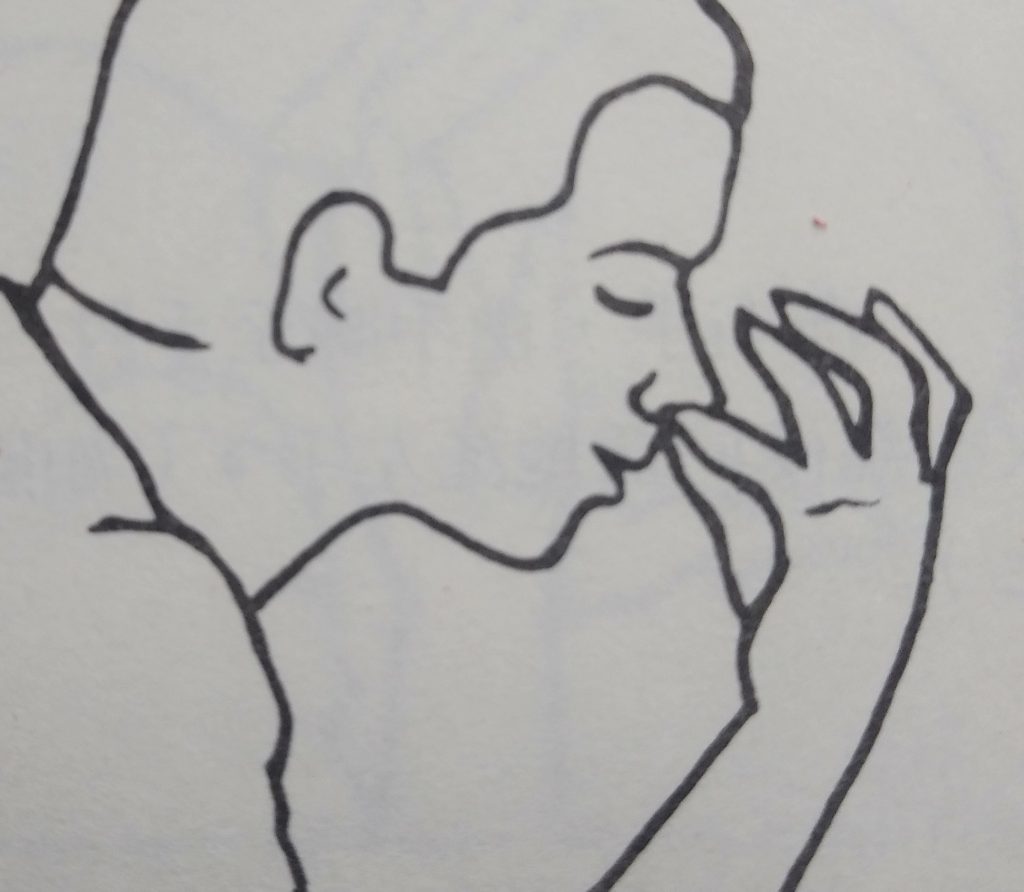
3:
Blow out the water x3 times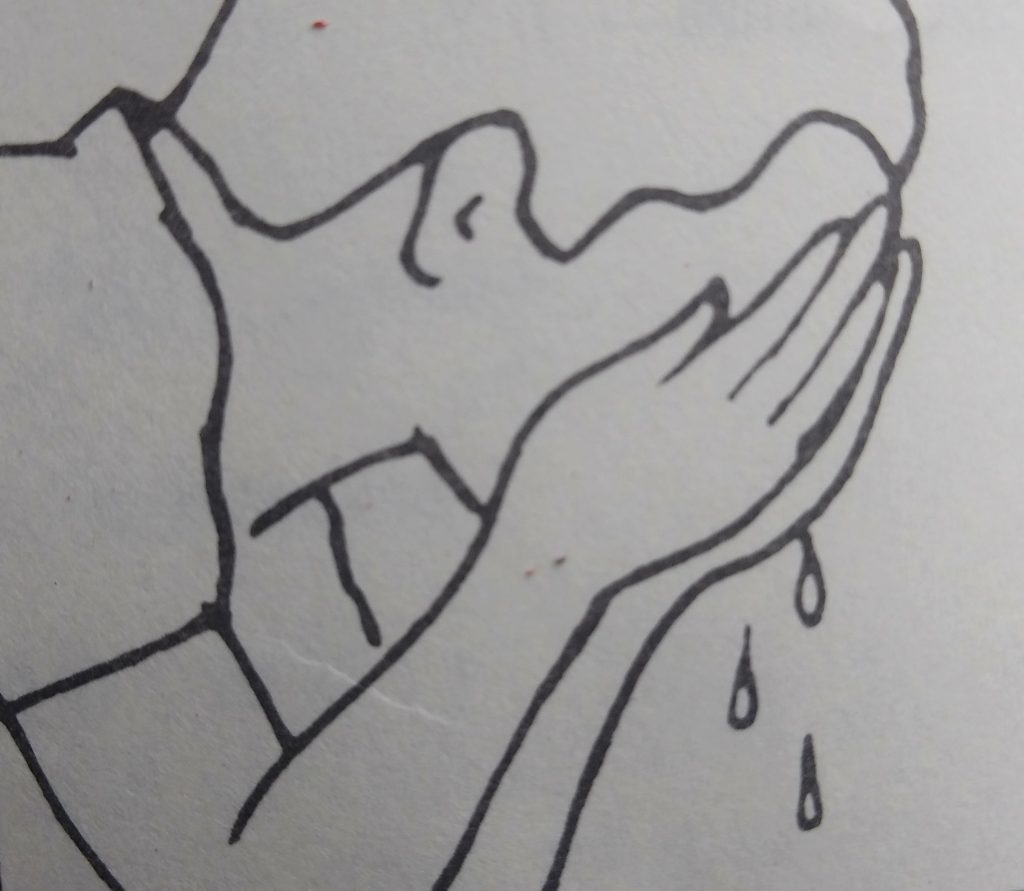
4:
Wash face with handful of water x3 times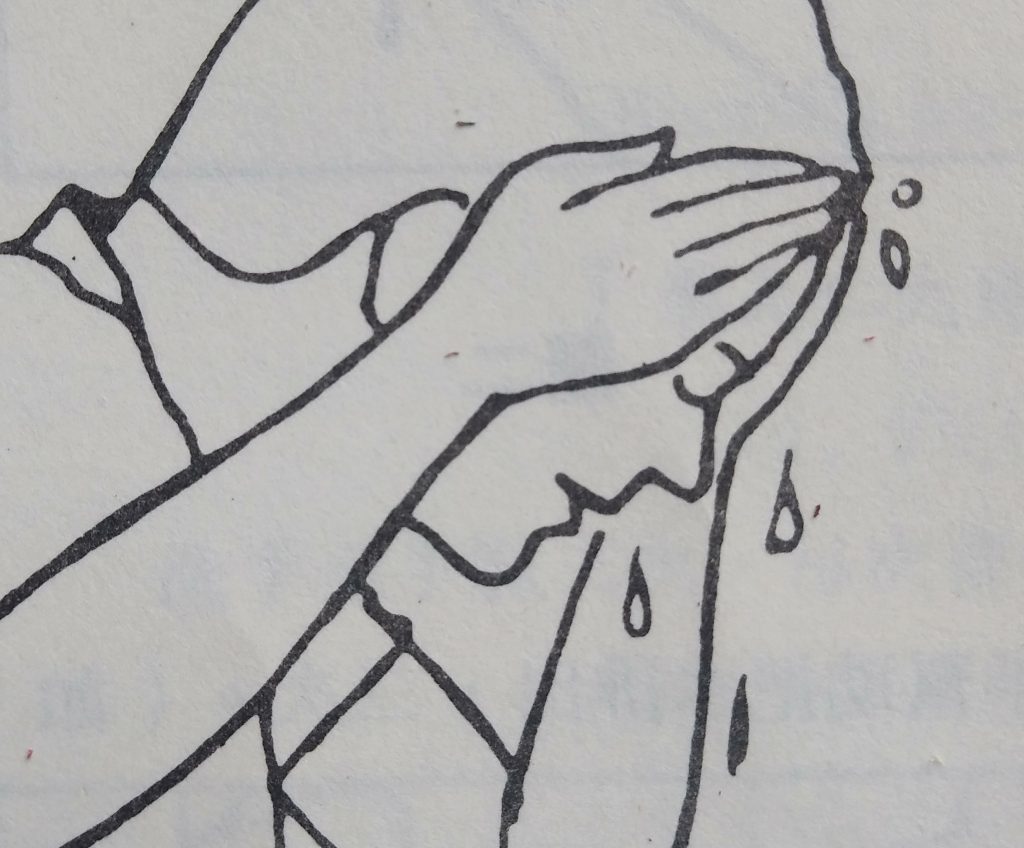
4:
Including from one side of ear to other side, from forehead to chin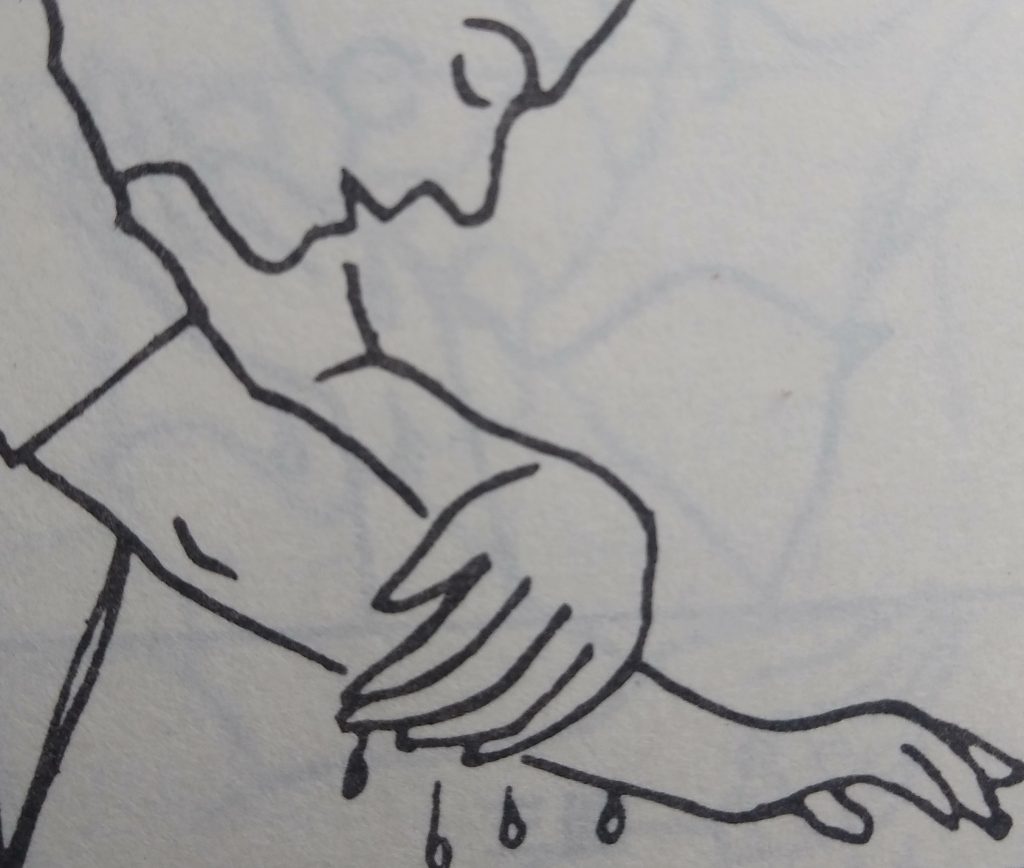
5:
Wash whole arm to elbow start from right to left x3 times each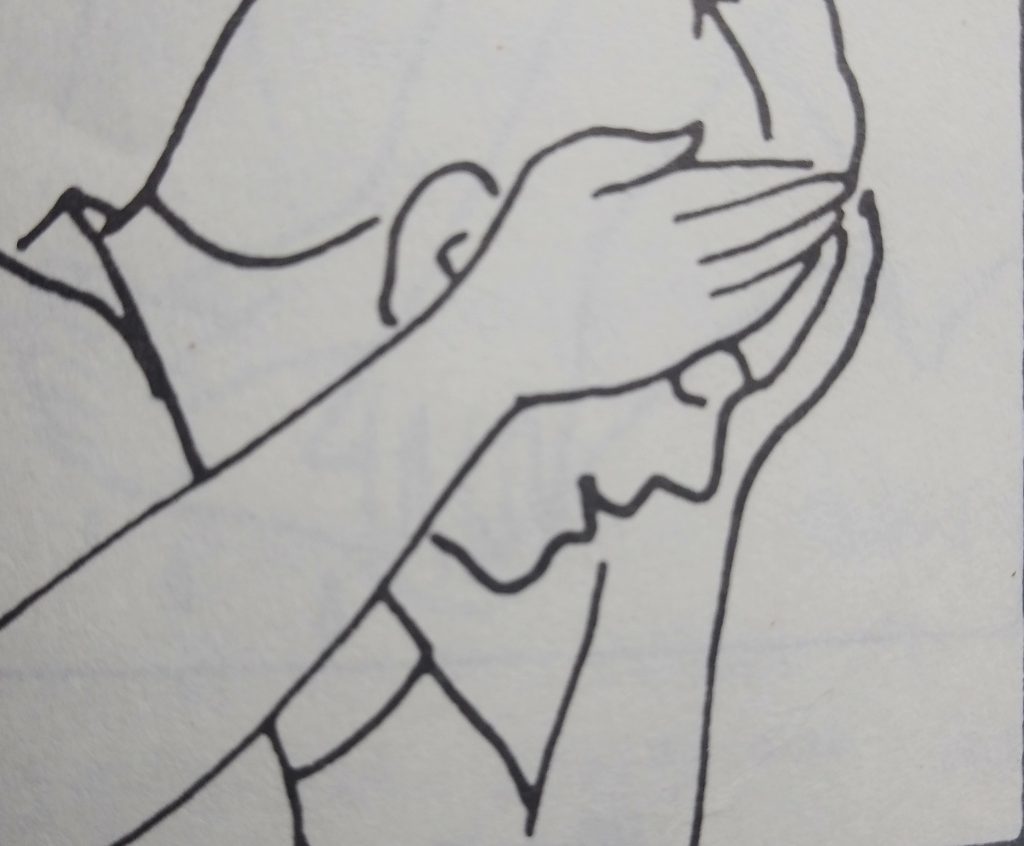
6:
Wet palms wipe the hair – from front to back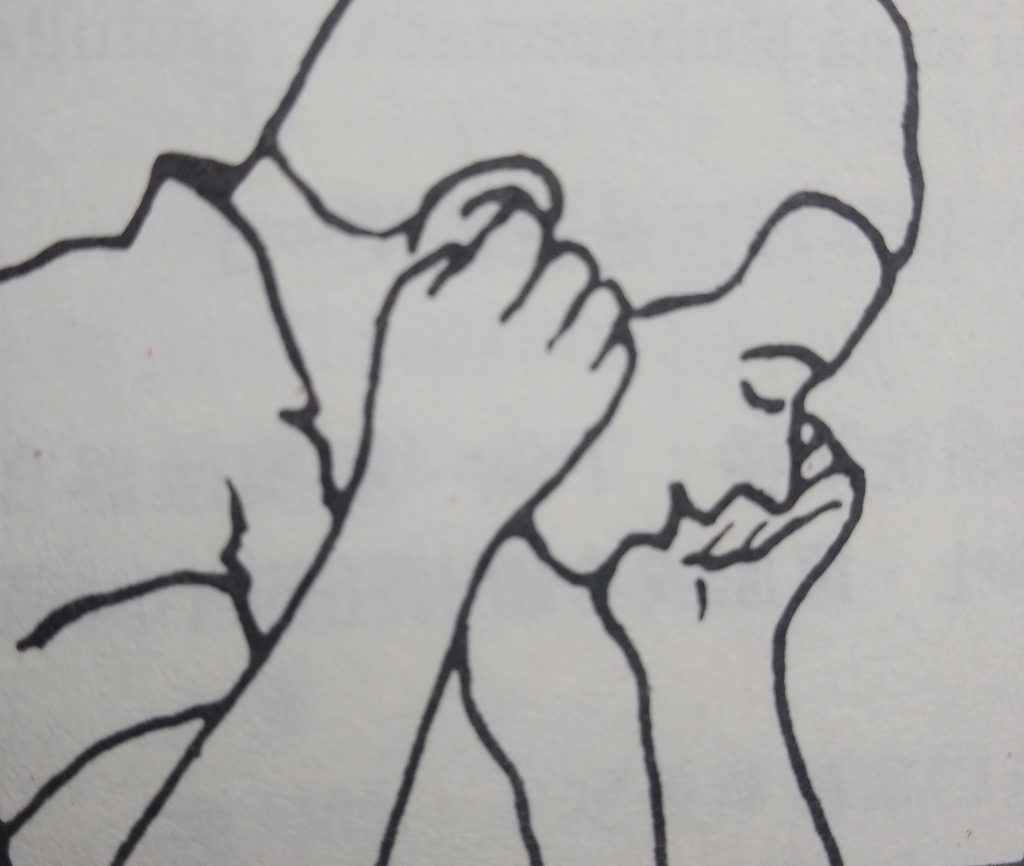
Cont. 6:
Wet fingers wipe everywhere inside the ear, the thumb wipe the back of the ear.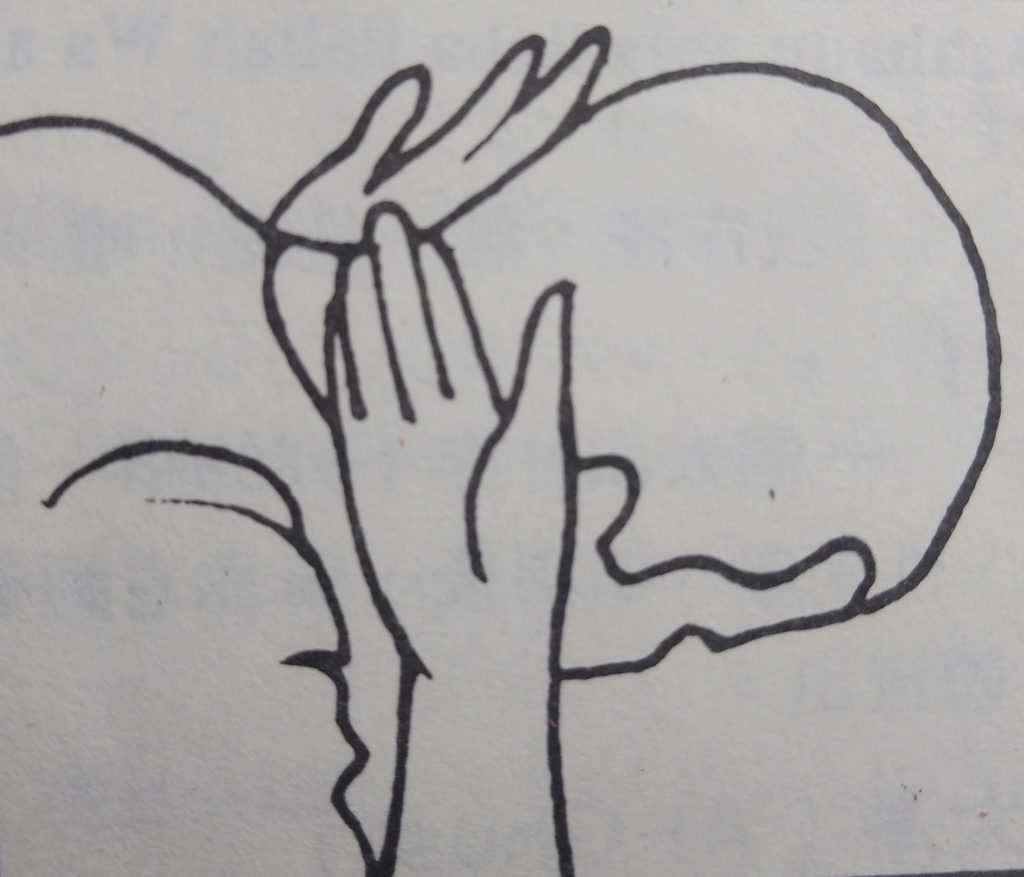
Cont. 6:
The back of the hands wipe the neck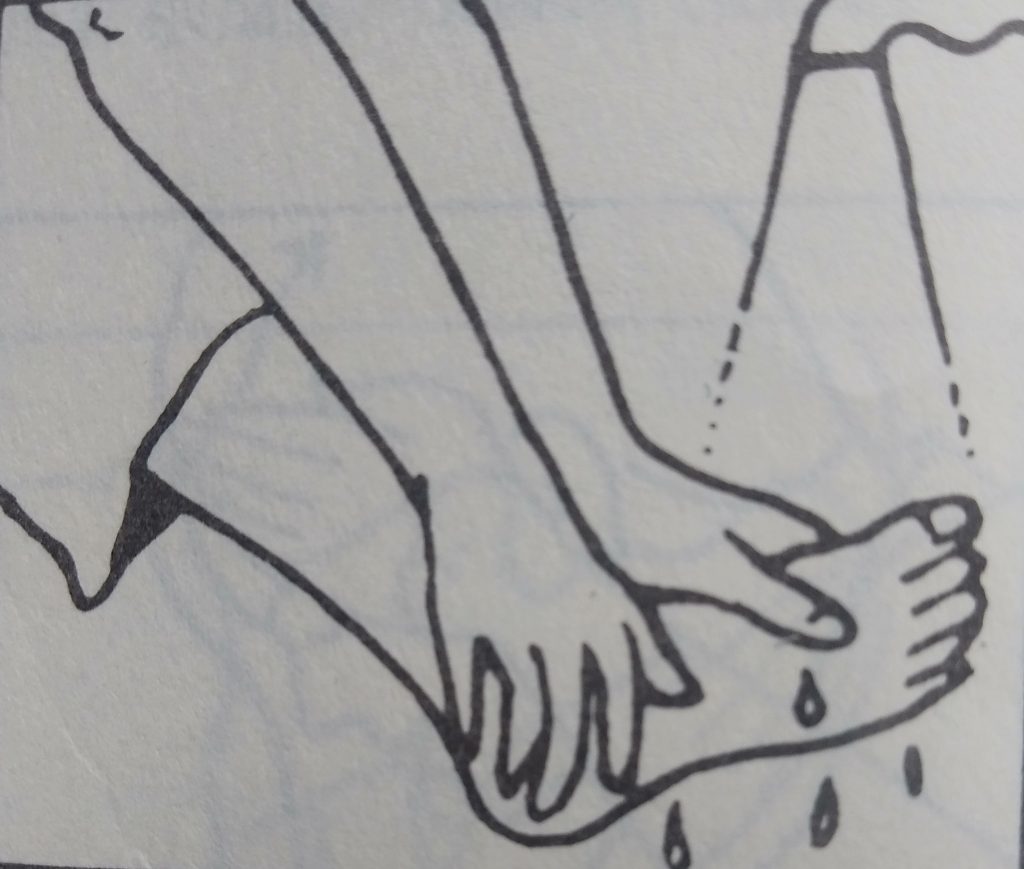
7:
Wash feet up above ankle, from right to left x3 times each
After cleaning, recite:

I bear witness that there is no god but Allah

and I bear witness that Mohammed is Allah’s Messenger
Proper Dress
For the Men
– just above the navel to just below the knees
– the clothes must be loose and not transparent
For the women
– all her body except her face and hands
– the clothes must be loose and not transparent
Direction of Prayer (Qiblah)
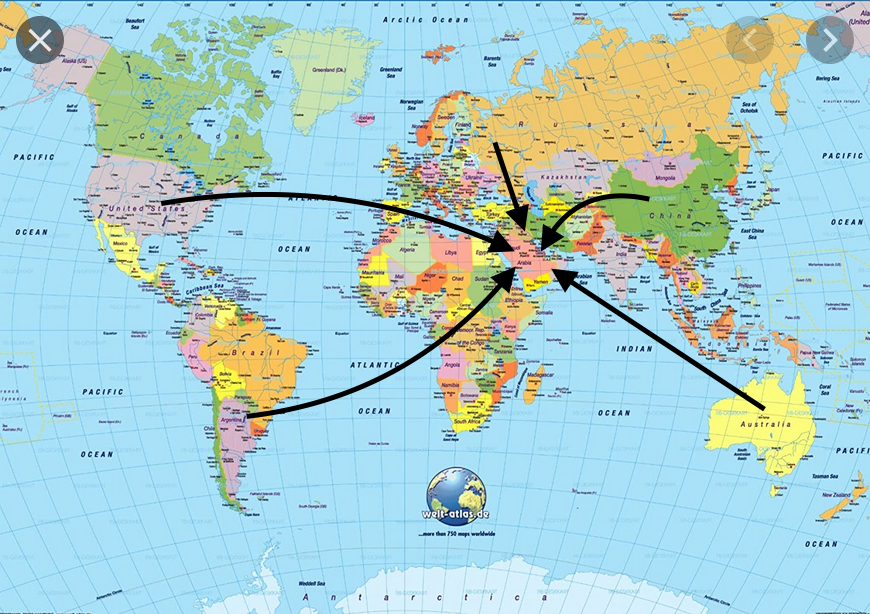
(2:149)
So from wherever you go out [for prayer] turn your face toward al- Masjid al-Haram [in Mecca], and indeed, it is the truth from your Lord. And Allah is not unaware of what you do.
拜功時間
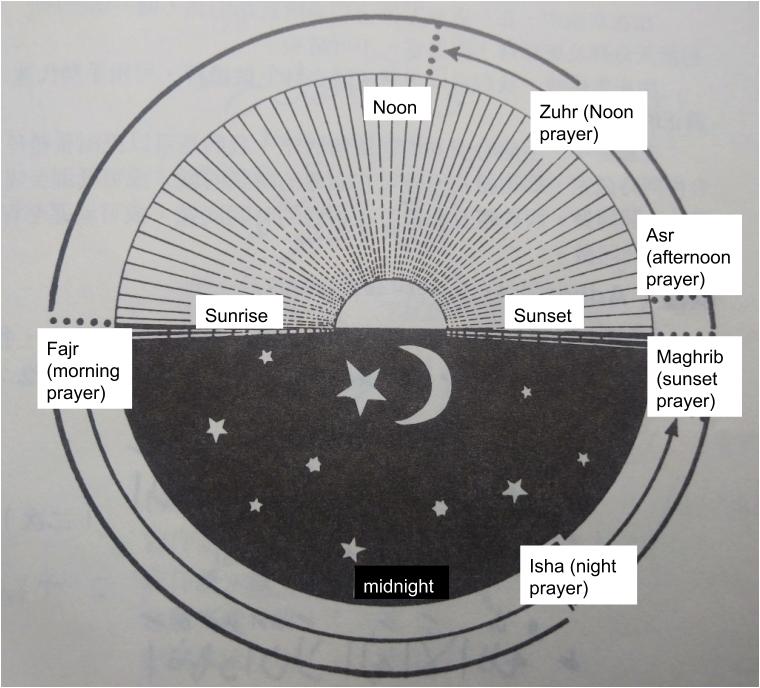
| Prayer name | Fajr | Zuhr | Asr | Maghrib | Isha |
| Time | Dawn and before sunrise | Little bit pass noon and around first half of afternoon | Around second half of afternoon before sunset | After sunset till dark | Dark night before Dawn |
| Sunnah prayer before obligatory prayer | 2 rakats | 2 or 4 rakats | 2 or 4 rakats | ||
| obligatory prayer | 2 rakats | 4 rakats | 4 rakats | 3 rakats | 4 rakats |
| Sunnah prayer after obligatory prayer | 2 or 4 rakats | 2 rakats | 2 rakats |
An-Nisa
(4:103) nd when you have completed the prayer, remember Allah standing, sitting, or [lying] on your sides. But when you become secure, re-establish [regular] prayer. Indeed, prayer has been decreed upon the believers a decree of specified times.
Al-Muzzammil
(73:20) Indeed, your Lord knows that you stand [in prayer] almost two thirds of the night or half of it or a third of it, and [so do] a group of those with you. And Allah determines [the extent of] the night and the day. He has known that you [Muslims] will not be able to do it and has turned to you in forgiveness, so recite what is easy [for you] of the Qur’an. He has known that there will be among you those who are ill and others traveling throughout the land seeking [something] of the bounty of Allah and others fighting for the cause of Allah. So recite what is easy from it and establish prayer and give zakah and loan Allah a goodly loan. And whatever good you put forward for yourselves – you will find it with Allah. It is better and greater in reward. And seek forgiveness of Allah. Indeed, Allah is Forgiving and Merciful.
Hud
(11:114-115)
And establish prayer at the two ends of the day and at the approach of the night. Indeed, good deeds do away with misdeeds. That is a reminder for those who remember. And be patient, for indeed, Allah does not allow to be lost the reward of those who do good.
Al-Isra
(17-78-82)
Establish prayer at the decline of the sun [from its meridian] until the darkness of the night and [also] the Qur’an of dawn. Indeed, the recitation of dawn is ever witnessed. And from [part of] the night, pray with it as additional [worship] for you; it is expected that your Lord will resurrect you to a praised station. And say, “My Lord, cause me to enter a sound entrance and to exit a sound exit and grant me from Yourself a supporting authority.” And say, “Truth has come, and falsehood has departed. Indeed is falsehood, [by nature], ever bound to depart.” And We send down of the Qur’an that which is healing and mercy for the believers, but it does not increase the wrongdoers except in loss.
Al-Insan
(76:25-26)
And mention the name of your Lord [in prayer] morning and evening and during the night prostrate to Him and exalt Him a long [part of the] night.
Praying in the forbidden times
– After obligatory Fajr is not allowed to pray until after sunrise.
– After obligatory Asr is not allowed to prayer until after sunset.
– Prayer is not allowed during sunrise and sunset (note: usually it takes few minutes)
– Prayer is not allowed around noon which is when the shadow is totally in the middle. Prayer is allowed once the shadow has moved with little bit longer reflection (note: it takes also few minutes during this process).
The Prohibition of Passing in front of a praying person
Hadith Al-Bukhari and Muslim:
The Prophet ﷺ said, “If one only knew the sin of passing in front of one who is praying, they would wait forty days, weeks or years then pass in front of them.”
Hadith Abu Dawood:
The Prophet Muhammad ﷺ said, “When one of you prays, he should pray towards his sutrah (barrier) and he should be close to it.” Once there is a barrier in front of the praying person, there is no sin for whoever walk pass the barrier.